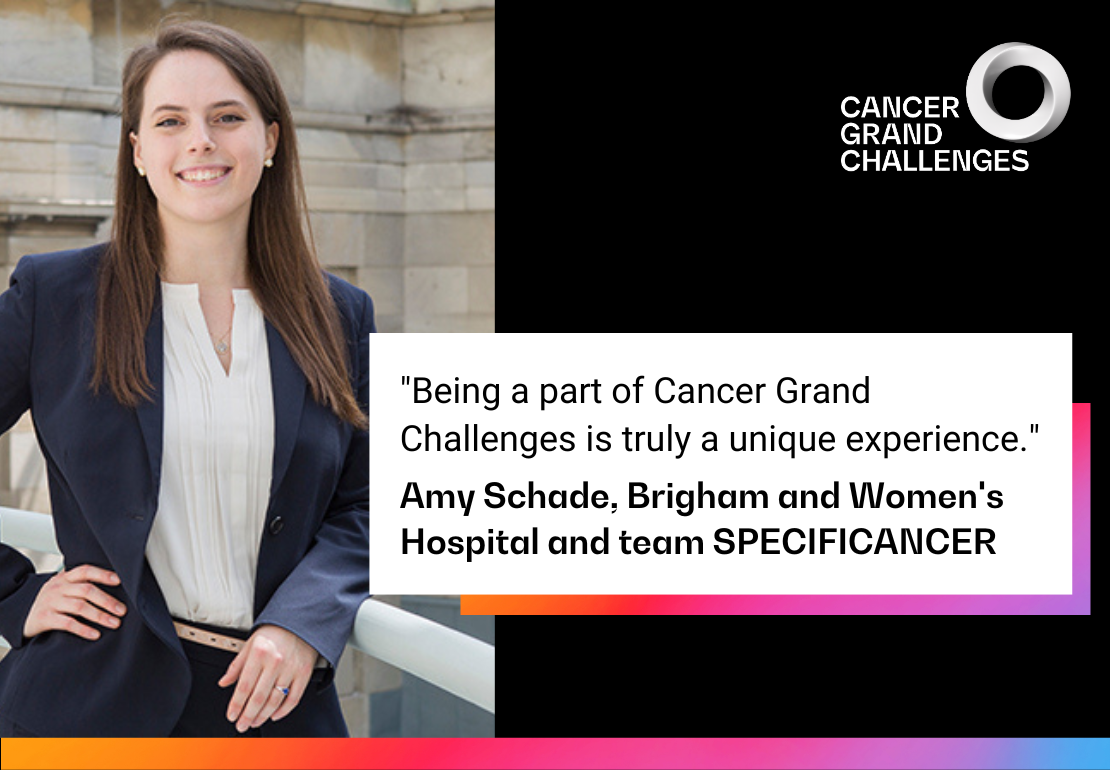In November 2022, Cancer Grand Challenges held its first in-person Future Leaders Conference in Barcelona, providing an opportunity for early-career researchers worldwide to connect, network and spark new scientific collaborations.
The conference was organised by a steering committee of Cancer Grand Challenges postdoctoral fellows and PhD students, including the SPECIFICANCER team’s Amy Schade, who shared her thoughts on the event.
This article was originally included in our annual progress magazine, Discover: a year of scientific creativity.
The Future Leaders Conference gave us many opportunities to meet and engage with our peers on other Cancer Grand Challenges teams. For some of the new teams, this was their first time to understand the global context of Cancer Grand Challenges and to learn what the previously funded teams were working on. There was a great balance of scientific talks, poster sessions and social networking events, including one at the National Art Museum of Catalonia.
The conference also gave us the opportunity to think about the future of Cancer Grand Challenges and team science, as we worked as teams to pitch what we thought would be the next round of challenges. These ideas were added to the list discussed by the Cancer Grand Challenges Scientific Committee to decide on the new set of challenges announced at the March 2023 Cancer Grand Challenges Summit in London.
For me, the conference was a great time to get to know other early-career professionals across all the Cancer Grand Challenges teams. I heard from many other Future Leaders that they really valued having the time to get to know their peers and learn more about what the other Cancer Grand Challenges teams were tackling. There was a lot of excitement about what the future of team science will look like during our careers, and how we have the opportunity to try to influence it. Having such an exciting and permissive environment, as well as meeting so many like-minded people, was very encouraging and motivating.
My biggest takeaway from the conference is that being a part of Cancer Grand Challenges is truly a unique experience. Throughout the conference, I had the opportunity to engage with my peers working on some of the biggest questions in cancer research. It was particularly exciting for me to hear from the newly funded teams about what they plan to do.
Given the positive feedback that we received, the conference organisers are starting to think about next year’s conference to make it an even bigger success. Our goals are to further develop the programme of activities beyond the conference to support Cancer Grand Challenges
Future Leaders and capitalise on the unique opportunities that this global initiative offers – for example, activities to encourage collaboration or lab exchanges, the launch of a virtual collaboration tool to easily access the expertise of our peers, and more to come. I’m really excited about the activities that we are planning to support the Future Leaders community.
